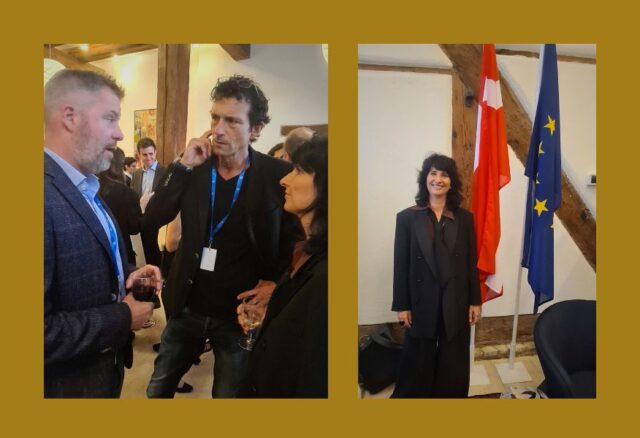AI has shed light on
A loophole in the law for performers
Denmark kicked off its EU Presidency with an international conference on AI and copyright. Among other things, international stakeholders presented and debated the Danish bill, which includes changes to better protect against the misuse of voices and faces in deepfake content and a new so-called 'performance protection' for performers' work. The bill comes together with a number of recommendations and a comprehensive report on the use of AI and copyright protection.
Sara Indrio, who spoke on behalf of the Danish artists at the conference, highlighted the lack of protection in the current legislation:
"Legislation has been overtaken by technology, and fortunately the politicians behind the proposal have agreed that we need to rectify this," she says.
As the law stands, there is an unfair difference between creators of lyrics and music and those who perform music, but also circus. With performance protection, we would have copyright protection for circus performers that is more comprehensive than it is today. In a reality where the use of AI is becoming much more common and widespread, it is necessary to create more extensive protections to prevent artificial intelligence from imitating voices, misusing faces, people or brands without consequence or payment, and that the performance itself can also have copyright protection even if the work itself is not protected by copyright.
"There is a great need for ambitious solutions that also make it possible to move forward with the use of AI, so that the huge potential of AI is at the expense of our ecosystems, economic opportunities - and the fundamental trust between artist and audience," says Sara Indrio, adding:
"Better protection for circuses is a key issue for the union, and with the current proposal we would see a historic breakthrough."
The bill, the expert group's report with recommendations and the conference mark high ambitions on the part of Denmark and came at the same time as Koda quantified the major economic consequences for the music industry. If current trends continue, Danish music stands to lose 28 per cent in revenue by 2030, according to the report.
"There is increasing pressure on the artist to give away rights to AI training. The combination of algorithms, AI and streaming technology is already pulling the value of artistic content away from artists, and this will only become harder and harder to stop. That's why stronger legislation is essential to protect both artistic ideas and performances. "
At the conference, Sara Indrio defended the specific proposals that the Danish Artist Association has brought forward for both the expert group's recommendations and new copyright legislation:
- Performance protection - protection for all performances - even when the work performed is not protected by copyright.
- Imitation protection - protecting performers against 'in the style of'.
- Deep fake protection - protecting brand, person and voice.


